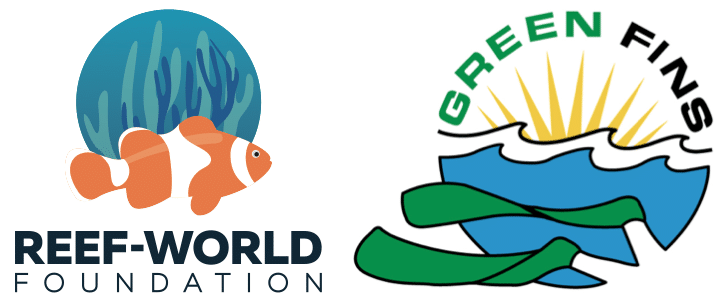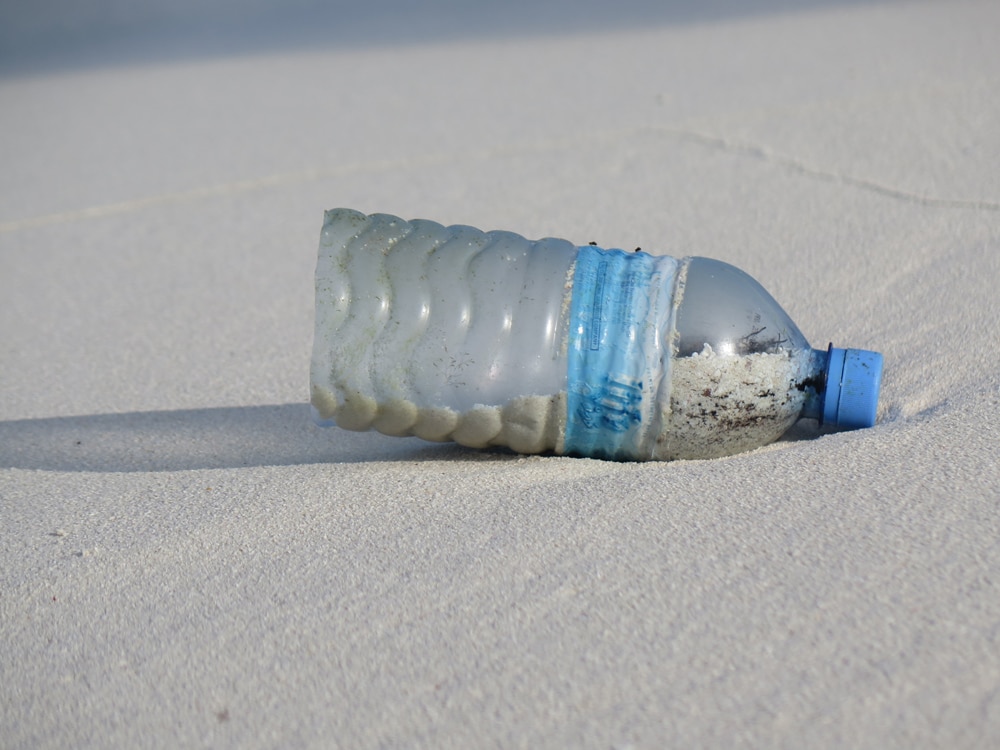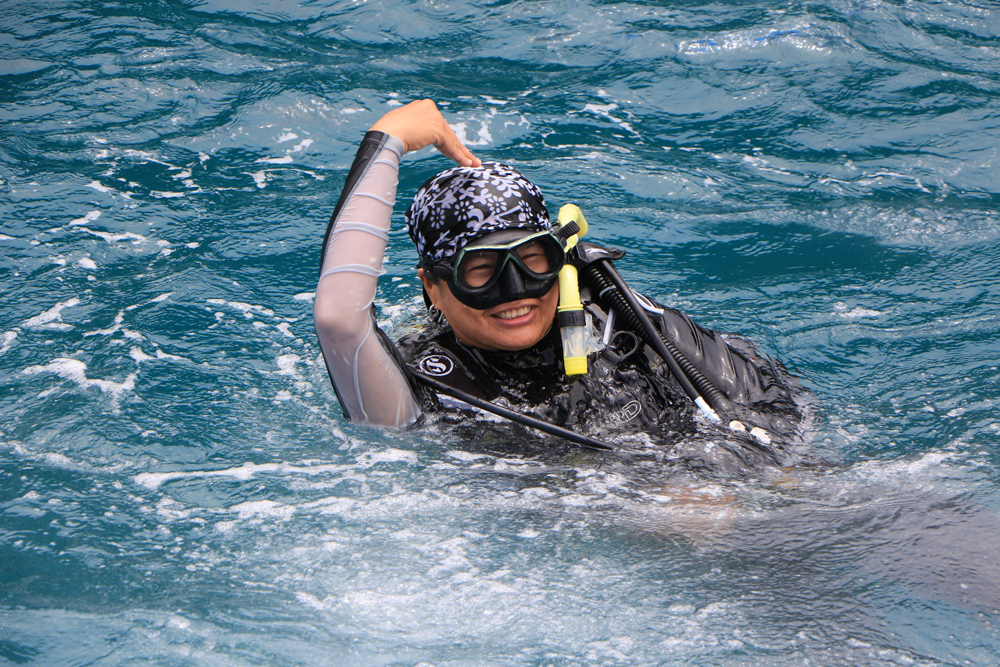Marine Life & Conservation
Reef-World launches new Green Fins resources

 The Reef-World Foundation – the international coordinator of the UN Environment Programme’s Green Fins initiative – has launched new guidelines to help dive and snorkel operators who are continuing to keep an environmental strategy high on their agenda despite the many changes taking place for travel businesses as a result of the COVID-19 crisis.
The Reef-World Foundation – the international coordinator of the UN Environment Programme’s Green Fins initiative – has launched new guidelines to help dive and snorkel operators who are continuing to keep an environmental strategy high on their agenda despite the many changes taking place for travel businesses as a result of the COVID-19 crisis.
The charity has also waived its usual £20 fee for its dive and snorkel centre Operational Handbook (encouraging operators to instead ‘pay what you can’) and is reminding dive professionals they can still take the free Green Fins Dive Guide e-Course to improve their environmental knowledge and skills.
Chloe Harvey, Reef-World’s Director, said: “We appreciate that this is an incredibly tough time for the diving and snorkelling industry. The coronavirus pandemic has many negative consequences for many people but there are silver linings including the potential to ‘redefine’ the tourism industry and use this downtime to put better environmental policies in place; especially since more and more tourists are demanding sustainable practices from their providers.
“As a collaborative network we need to work together to weather this storm as best we can. That’s why Reef-World has developed new resources – and waived the usual fee for its popular Operational Handbook – to help the industry keep an environmental strategy high on their agenda, even during this difficult time. While we appreciate this is a stressful time for the travel industry, putting better environmental measures in place now will help businesses come out stronger – and with a more sustainable business – when travel restrictions are lifted.
“While we are confident that the scuba diving industry will bounce back, there is likely to be a ‘new normal’ and level of expectation in sanitisation not previously witnessed by the sector. For this reason, we have developed new guidelines to help dive and snorkel operators manage and dispose of chemical cleaning agents in an environmentally friendly way. These new guidelines are available for free to Green Fins members and non-members alike.
“We realise it might not be possible for everyone but we’d like to thank everyone who is continuing to find ways of reducing their impact on the coral reefs and related ecosystems: together, we can make both the environment and our tourism businesses more resilient.”
New Guidelines on Environmental Best Practice for Chemical Cleaning Agents
The use of chemical cleaning agents is widely regarded as the safest option when disinfecting equipment, surfaces and laundry in today’s climate. However, many cleaning and cosmetic products contain substances which are hazardous to the marine environment. As such, Reef-World has launched the Green Fins Guidelines for Environmental Best Practice for Chemical Cleaning Agents to help dive and snorkel operators deal with chemical cleaning agents in an environmentally friendly way. These recommendations are a consolidation of known best practice around the management and disposal of hazardous waste and chemicals for minimal environmental impact.
The Green Fins guidance – which should be used in addition to, not instead of, health and safety recommendations from DAN and the WHO on preventing viral spread – explains how to deal with any hazardous waste that may pose a significant threat to the marine environment.
The guidelines are available free of charge for Green Fins members and non-members alike. They can be downloaded here.
The Green Fins Operational Handbook is now free of charge
The Green Fins Operational Handbook is a one-stop-shop of information to help dive and snorkel operators who are currently reviewing their sustainability policies. While normally priced at £20, Reef-World is waiving this fee during the COVID-19 pandemic to ensure the dive industry can access its environmental support and tools during this difficult time. To help the charity continue its ongoing work to protect coral reefs, operators who access the handbook are asked to contribute what they can.
Access the Green Fins Operational Handbook here.
Take the Dive Guide e-Course
Dive professionals who want to continue their learning from home can also take the Green Fins Dive Guide e-Course for free (or $25 if you would like a certificate). This online course helps dive professionals who want to positively influence their guests’ behaviour and protect coral reefs on every dive. It helps build on guides’ existing scuba diving knowledge by providing the skills and confidence to conduct more environmentally friendly diving trips and manage divers to prevent them causing damage.
Dive professionals can take the free Green Fins Dive Guide e-Course here.
Upcoming assessments
Reef-World is also keen to reassure all Green Fins members who are not able to go through their annual assessment process that they will remain members of the Green Fins programme. Those who are not able to conduct their reassessment within the 18-month timeframe that would maintain their active membership status will be shown as inactive on the website. The ‘inactive’ status shows they have not had an assessment within the last 18 months; however, they remain Green Fins members, as has always been the case, and Reef-World is actively communicating to the public that the ‘inactive’ status is only with regards to their Green Fins status, not the status of the business. The Green Fins teams will be doing all they can to reassess members in their respective countries as soon as it is possible and safe to do so.
Review your feedback points from your latest assessment
The Reef-World Foundation would also like to remind all Green Fins members of the three feedback points they would have received by email following their latest assessment. The charity is asking operators to take this time to review and work on your feedback points. If you need any further guidance – or would like some additional points to work on – please contact your Green Fins Assessor directly.
Watch the Green Fins How-To-Videos
These videos help teach dive and snorkel operators how to improve environmental practices, such as implementing a responsible trash management policy, giving a great environmental pre-dive briefing, managing your guests (including underwater photographers) and more.
To watch the How-To videos, visit the Green Fins YouTube channel.
For more information, please visit www.reef-world.org or www.greenfins.net.
Dive and snorkel operators interested in signing up to Green Fins can find the membership application form here.
Marine Life & Conservation
Paul Watson Released as Denmark Blocks Japan’s Extradition Bid

Renowned anti-whaling activist Paul Watson has been released from custody in Greenland after spending five months in detention. Denmark’s Justice Ministry rejected Japan’s request for his extradition, citing insufficient guarantees that his time already served in custody would be credited against any potential sentence.
The 74-year-old Canadian-American was arrested on July 21 in Nuuk, Greenland’s capital, when his ship docked to refuel. His arrest was based on a 2012 Japanese warrant related to a 2010 encounter in Antarctic waters. Japan alleged Watson obstructed operations and caused damage to a whaling research ship during efforts to disrupt illegal whaling. Watson has consistently denied these claims, maintaining his commitment to marine conservation.
Denmark, which oversees extradition matters for Greenland, concluded that while the legal conditions for extradition were met, the lack of assurances from Japan regarding time-served credit made extradition untenable.
In a video shared by his foundation, Watson expressed gratitude and relief, saying, “After five months, it’s good to be out… and good to know they’re not sending me to Japan.” He added that the most difficult part of his time in custody was being separated from his two young sons.
Watson is a pioneering figure in marine conservation, known for founding the Captain Paul Watson Foundation in 2022 after decades of activism with the Sea Shepherd Conservation Society. His bold efforts to defend marine life have earned him widespread support, including from celebrities and conservationists. His work has also been featured in the acclaimed reality TV series Whale Wars.
Watson’s lawyer, Jonas Christoffersen, praised the decision, stating, “We are happy and relieved that Paul Watson is now free.” He added that Watson is eager to reunite with his family and continue his vital work.
The arrest occurred while Watson’s vessel, the M/Y John Paul DeJoria, was en route to the North Pacific with a team of 26 volunteers to intercept a Japanese whaling ship. His foundation described the arrest as politically motivated and emphasized that Watson’s actions were focused on ending illegal whaling practices.
Japan resumed commercial whaling in 2019 after leaving the International Whaling Commission, asserting that whale meat is a cultural tradition. Conservationists, however, continue to challenge these practices, highlighting their impact on marine ecosystems.
Despite the challenges, Watson remains steadfast in his mission to protect marine life and bring attention to whaling practices. His dedication to ocean conservation has made him a globally respected advocate for the environment.
Marine Life & Conservation
12 Days of Zero-Waste Fish-mas

This holiday period, the Marine Conservation Society, the UK’s leading ocean membership charity, invites you to make some simple changes to eating fish this Christmas to help our seas.
Dr Kenneth Bodles, Head of Fisheries and Aquaculture at the Marine Conservation Society, said, “During the festive season, our consumption increases, but so does waste. Sustainability isn’t just about where food comes from – it’s also about how you use it. By reducing waste and making the most out of your seafood, you’re not only taking steps to be more ocean-friendly, but can also help to cut costs during what is often one of the most expensive times of the year”.
The Marine Conservation Society has compiled twelve tips on how to consume seafood sustainably with zero-waste this Christmas:
Buy whole fish instead of fillets
Instead of fillets, consider buying whole fish such as salmon, hake, or lemon sole. By adopting a “nose to tail” approach with cooking, whole-baked fish not only feeds a crowd, but also helps to minimise waste and maximise sustainability by using up every part of the animal, including bones, skin, and fat.
Make fish stock
Leftover fish bones or shells can be put to good use by boiling them to make a nourishing fish stock or bisque. This can be frozen and preserved for later use and makes for a flavourful base in a soup.
Make your own fish pâté
Avoid waste by turning leftover fish, such as smoked mackerel or salmon, into a delicious pâté by blending with cream cheese and lemon. Perfect when paired with crackers.
The sustainability of salmon and mackerel varies depending on where and how it is caught or farmed. For more information on green-rated options, check the charity’s Good Fish Guide.
Buy frozen
By purchasing seafood that is frozen or vacuum-packed, this helps to reduce waste by extending the shelf life of your food.
Fish pie
If you’re wondering what to do with leftover cooked fish, why not opt for a classic fish pie with mashed potatoes, leeks, and a cheesy sauce? A sure crowd pleaser on Boxing Day.
Use the head
Don’t forget the fish head! The meat is incredibly tender and flavourful. The charity recommends a cod’s head curry or recreating Fallow’s renowned cod’s head in siracha butter.
By stretching your ingredients further, not only is this a more sustainable way to enjoy seafood, but also cost-effective by repurposing leftovers and cooking creatively.
Boxing Day brunch
Mix leftover kippers or smoked salmon with scrambled eggs for a tasty, zero-waste, Boxing Day brunch.
For best choice, make sure you buy kippers, or herring, from the North Sea and the North Irish Sea.
Zero-waste storage
A top tip from the Marine Conservation Society to avoid waste is freezing fish offcuts to save for future use.
Crisp up the skin
Even leftover fish skin can be turned into a quick savoury snack by crisping it up in an air fryer with a little olive oil and salt.
Anchovies two ways
Leftover anchovies can either be blended with butter to make a delicious anchovy butter or tossed into pasta for a hit of umami flavour.
The charity recommends opting for anchovies caught in the Bay of Biscay for best choice.
Fishcakes
For an easy, zero-waste meal, leftover seafood trimmings can be mixed with mash and fried in breadcrumbs to make fishcakes.
Pickled mussels
Try pickling mussels in 1:1 vinegar and water, with a dash of sugar for a sustainable, zero-waste snack that can be enjoyed well beyond the festive season.
Mussels farmed in the UK are a seafood superhero. Grown using low-impact methods and harvested by hand, they get all the food they need from the sea around them. This makes them one of the most sustainable, ocean-friendly, and cost-effective seafood options.
Players of People’s Postcode Lottery have raised £6.6M towards the Marine Conservation Society’s vital work in making seafood more sustainable.
Laura Chow, Head of Charities at People’s Postcode Lottery, said: “Fish is a festive favourite for many, but making sustainable choices when it comes to how we buy and eat seafood makes all the difference for our ocean. Support from players of People’s Postcode Lottery has helped the Marine Conservation Society further its sustainable seafood work, so that we can all enjoy healthier, better protected seas.”
The Marine Conservation Society encourages you to make sustainable seafood choices a year-round habit, not just for Christmas. To check how sustainable the seafood on your plate is, you can visit the charity’s Good Fish Guide. The Guide helps consumers and businesses identify the most sustainable seafood using a simple traffic light system, based on where and how species are caught or farmed. Green is the best choice, amber means improvements are needed, and red indicates fish to avoid buying.
Zero-waste gift idea
Why not embrace a zero-waste Christmas by gifting a membership to support marine conservation? It’s a meaningful, low-waste gift that helps protect our ocean for generations to come. Memberships start from as little as £5 a month – the price of a sandwich and drink from your local coffee shop.
Find the latest sustainable seafood advice for wild-caught and farmed seafood on the Good Fish Guide, downloadable to your phone from www.mcsuk.org/goodfishguide.
-

 News2 months ago
News2 months agoIconic SS United States to become the World’s Largest Artificial Reef
-

 News3 months ago
News3 months agoBook Review – 52 Assignments: Underwater Photography
-

 Gear News3 months ago
Gear News3 months agoDYNAMICNORD – New German diving brand enters the British market
-

 News3 months ago
News3 months agoExploring Cenote El Pit: A Diver’s Dream
-

 Gear News3 months ago
Gear News3 months agoTry BARE drysuits (and maybe even win one!) this Friday with Sea & Sea at North West Dive Fest
-

 Marine Life & Conservation3 months ago
Marine Life & Conservation3 months agoBook Review: Coral Triangle Cameos
-

 Blogs2 months ago
Blogs2 months agoDive the Egyptian Red Sea this Autumn with Regaldive
-

 News3 months ago
News3 months ago2024 Ocean Art Underwater Photo Competition Announced





